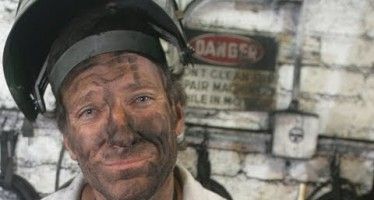Working Hard to Look Busy In Appropriations
Working hard or hardly working should be the motto of the Golden State. Instead of “jobs, jobs, jobs,” the favorite sound bite for California politicians, “spend, spend, spend” is what’s for dinner at the capitol. Dungeness crab, rendering plants and pets, sex offenders and the Grand Jury were all on the menu in the Senate Committee on Appropriations today.
The very definition of an “Appropriations Committee” is to authorize the government to spend money. But the theme always seems to be “but look at how much I saved.”
Senator Gil Cedillo, D-Los Angeles, presented his bill regulating the rendering and pet food industry with a new advisory board.
Senator Dean Florez presented the proposed animal abuse registry, requiring animal abusers to register with local police departments.
And Senator Pat Wiggins wants a dungeness crab task force.
Interestingly, Senator Patricia Wiggins, D-Santa Rosa, had four bills on the agenda today, amidst the ever present rumors that she is not actively working as a Senator, due to a serious and debilitating illness. Instead, Senator Mark DeSaulnier, D-Concord, presented the bills for her, explaining “she’s in her district today,” about her absence.
Senator Mark Leno, D-San Francisco presented a commercial airline passenger rights bill, and another about the massive truancy problem in state public schools.
Senator George Runner, R-Lancaster, presented his bill requiring sex offenders to register any online social networking internet accounts.
Probably the most intereseting and potential cost saving bill presented was Democratic Senator Joe Simitian’s SB 1425 which would limit the retirement benefits of state employees by ending pension spiking, and “double dipping” in state retirements. Pension spiking is the practice of inflating compensation dramatically in the last few years of state employment, thereby creating a larger retirement benefit. “Double dippers” retire from state employment and then immediately contract with the state in the same or similar job.
Senator Lois Wolk, D-Davis, presented her bill to help disadvantaged communities, requiring a city or county to amend its general plan to address the needs of disadvantaged in unincorporated areas. This prompted Senator Dave Cox, R-Fair Oaks to ask how it would be paid for. A representative from the California Rural Legal Fund appearing in support of Wolk’s bill, explained that Proposition 84 set aside $12 million for assistance to local governments to help disadvantaged communities.
There were other bills including stem cell research, Heritage schools, airport easements, construction permitting, and juvenille inmate Medi-cal bills.
The Department of Finance representative in attendance, when asked more often than not, stated “I do not have the file” referring to the bill being presented, and was unable to offer an analysis about the cost to the state.
Appropriations committee meetings are long and tedious, and make it appear that the state’s checkbook is still open and writing checks for legislator’s pet projects and special interest.
Working hard to look busy, instead of working hard on a sick state budget seems to be the favorite menu item for this legislature.
– Katy Grimes
Related Articles
CalWatchdog Morning Read – September 1
Cap-and-trade spending deal reached Legislators honor fellow member accused of domestic violence Wins and losses from legislative session Hope for
Video: Mike Rowe on the hidden cost of compliance
There are a lot of dirty jobs few people want to do, but which are essential to keep society going.
‘We are destined to live with a growing and permanent underclass’
It may be building very slowly, and years later than it should have first appeared. But there is beginning to




